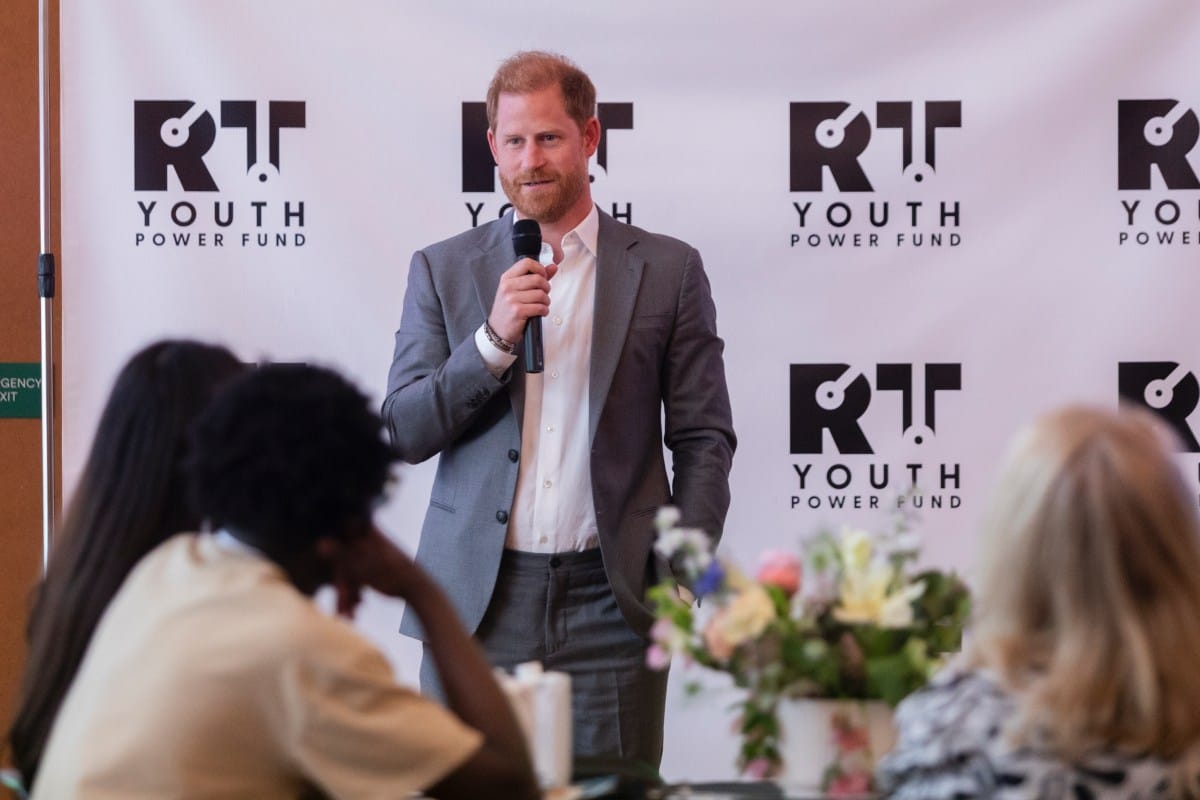Prince Harry Supports Youth Groups on Social Media and AI Safety

▼ Summary
– Prince Harry joined youth leaders in Brooklyn to discuss tech safety and innovation, emphasizing the dual nature of technological advancements and the lack of accountability for online safety.
– The event was organized by the Responsible Tech Youth Power Fund (RTYPF), supported by Archewell and other notable entities, to provide grants to youth organizations focused on technology’s future.
– Attendees, mostly around 22 years old, expressed concerns about social media’s impact and the rapid pace of technological change outstripping legal frameworks.
– Key discussions included the need for youth input on technology, the mental health crisis linked to social media, and the dangers of AI tools creating harmful content.
– The youth advocated for regulatory changes and the creation of organizations to ensure their perspectives are considered in tech policy, highlighting collaboration with entities like the FDA and FTC.
Prince Harry, Duke of Sussex, stepped into a brightly lit conference room in Brooklyn on Thursday, joining a group of youth leaders engaged in tech safety, policy, and innovation. The atmosphere was abuzz with conversation, but many were unaware of his arrival until he joined them at a table, initiating discussions.
After interacting with various groups, Prince Harry addressed the audience, highlighting the dual nature of technological advancements. He expressed gratitude for the youth’s efforts, emphasizing the overwhelming power of tech platforms and the lack of accountability in ensuring online community safety.
He pointed out that some individuals in power prioritize profit over safety, urging the young leaders to leverage their knowledge and courage to challenge these issues.
The gathering was organized by the Responsible Tech Youth Power Fund (RTYPF), which provides grants to youth organizations focused on the future of technology. The Duke’s Foundation, Archewell, co-founded with Meghan, Duchess of Sussex, supported the RTYPF’s latest grantees, alongside notable entities like Pinterest and Melinda French Gates’ Pivotal Ventures.
TechCrunch had the opportunity to speak with the attendees, mostly around 22 years old, about their work in the rapidly evolving tech landscape. While they were hopeful about AI’s future, they expressed concerns about social media’s impact on their lives, noting the pace of technological change outstrips legal frameworks.
Lydia Burns, 27, from the nonprofit Seek Common Grounds, emphasized the need for youth input on technology’s impact on their lives. She clarified that young people are not anti-technology but seek a voice in shaping its development.
Conversations at the event frequently circled back to social media. The consensus was that while social media pervades every aspect of young people’s lives, it also carries potential threats.
Adam Billen, 23, from Encode, discussed his work on AI safety legislation, including the Take It Down Act and California’s SB53. He highlighted the dangers of easily accessible AI tools for creating realistic but harmful content, noting the lack of stringent regulations and the ease with which young people can encounter such tools online.
Sneha Dave, 26, founder of Generation Patient, voiced concerns about influencers promoting prescription medications on social media, questioning the FDA’s role in regulating such content to prevent misinformation.
The youth expressed that social media has become a mental health crisis. Yoelle Gulko, 22, is creating a film to raise awareness about social media dangers. She observed that many people are quitting social media, feeling overwhelmed by its impact on their lives.
Leo Wu, 21, recounted how the hype around ChatGPT in 2023 motivated him to start AI Consensus. His organization collaborates with students, tech companies, and educational institutions to find effective ways to integrate AI in education without compromising critical thinking.
Wu questioned whether the blame for social media addiction lies with the users or the companies creating these addictive technologies. He aims to equip students with the skills to use AI responsibly.
The attendees advocated for regulatory changes and creating their own organizations to ensure the youth perspective is considered in tech policy. Jennifer Wang, founder of Paragon, sees youth as a crucial link between current government and future responsible tech.
Dave from Generation Patient is pushing for collaboration between the FDA and FTC and supporting legislation to protect patients from misleading drug ads online.
Billen from Encode is supporting various state bills for AI transparency and minors’ protection from chatbots. He is closely monitoring the Character.AI lawsuit, which could set a precedent for future AI regulation.
During a discussion with Prince Harry, Wu emphasized the need for more accountability in AI development, pointing out that the solution lies with the people in the room.
(Source: TechCrunch)